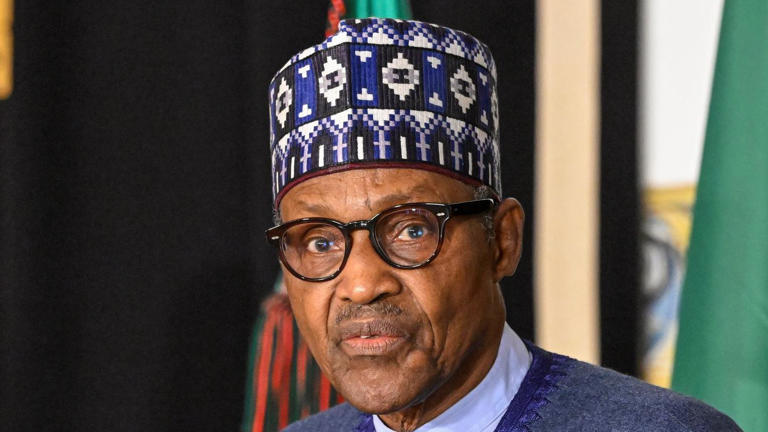The news of former President Muhammadu Buhari’s death was announced July 13, 2025, after being in a London clinic.
Buhari, a former Head of State, during the military regime, was on July 3rd reported to have been hospitalised in London. He was the president of Nigeria between 2015-2023.
New Daily Prime highlights 10 things you need to know about the ‘Sai Baba’ man as fondly called while campaigning to be president of Nigeria in 2015.
What you need know about Buhari
1. Humble beginnings in Daura
Muhammadu Buhari was born on December 17, 1942, in Daura, Katsina State, to Adamu and Zulaiha Buhari. A member of the Fulani ethnic group and a devout Muslim, his early upbringing in northern Nigeria instilled in him values of discipline, modesty, and religious devotion,.principles that guided much of his life.
2. A soldier turned Head of State
Buhari rose through the ranks of the Nigerian Army to become a Major General. On December 31, 1983, he led a coup d’état that ousted the civilian government, becoming Nigeria’s military Head of State. His administration was characterized by strict discipline and the launch of the “War Against Indiscipline,” a campaign aimed at enforcing civic order and national ethics through military-style enforcement.
3. Detention and return to public life
In August 1985, Buhari’s government was overthrown, and he was detained until 1988. Nearly a decade later, he returned to national relevance as Executive Chairman of the Petroleum Trust Fund (PTF) under General Sani Abacha. His leadership of the PTF was marked by infrastructure development, although the initiative was not without controversy regarding transparency and accountability.
4. The relentless pursuit of democratic power
Buhari entered democratic politics in the early 2000s, contesting presidential elections in 2003, 2007, and 2011, each ending in defeat. Undeterred, he won the 2015 election as the candidate of the All Progressives Congress (APC), defeating incumbent President Goodluck Jonathan. This victory was historic, marking the first time an opposition candidate unseated an incumbent president in Nigeria’s democratic history.
5. A presidency framed by anti-corruption efforts
Buhari campaigned on a strong anti-corruption platform and, during his presidency, launched multiple high-profile investigations and prosecutions. While his efforts earned praise for bringing attention to systemic corruption, critics argued that the campaign lacked even-handedness and was often politically selective.
6. Persistent health challenges and international medical treatment
Throughout his presidency, Buhari’s frequent medical trips to the United Kingdom drew public scrutiny and concern. His long absences sparked debate about governmental transparency and raised broader questions about the state of public healthcare in Nigeria.
7. A reserved public persona and family life
Buhari maintained a notably reserved and stoic public image. He was married to Aisha Buhari and was the father of several children. Although intensely private, his family occasionally made headlines, especially during moments of political disagreement or public commentary.
8. Economic policy and nationalist interventions
Under Buhari, Nigeria saw the implementation of policies aimed at promoting economic self-reliance, such as the Anchor Borrowers’ Programme and the closure of land borders to discourage imports. However, his administration also presided over two economic recessions, rising inflation, and high unemployment, leading to widespread hardship among ordinary citizens.
9. Efforts to tackle national insecurity
Buhari prioritized national security, particularly in the fight against Boko Haram and other insurgent groups. His military background initially inspired public confidence, and while some territorial gains were made, insecurity persisted and evolved, with kidnapping, banditry, and rural violence becoming more prevalent during his tenure.
10. A legacy of rigor and controversy
Buhari’s legacy remains a subject of debate. Admirers view him as a principled and disciplined leader who sought to restore order and combat corruption. Critics, however, argue that his leadership was rigid, his economic policies ineffective, and his human rights record troubling. Nevertheless, he remains one of Nigeria’s most consequential political figures, having served both as military ruler and twice-elected civilian president.



